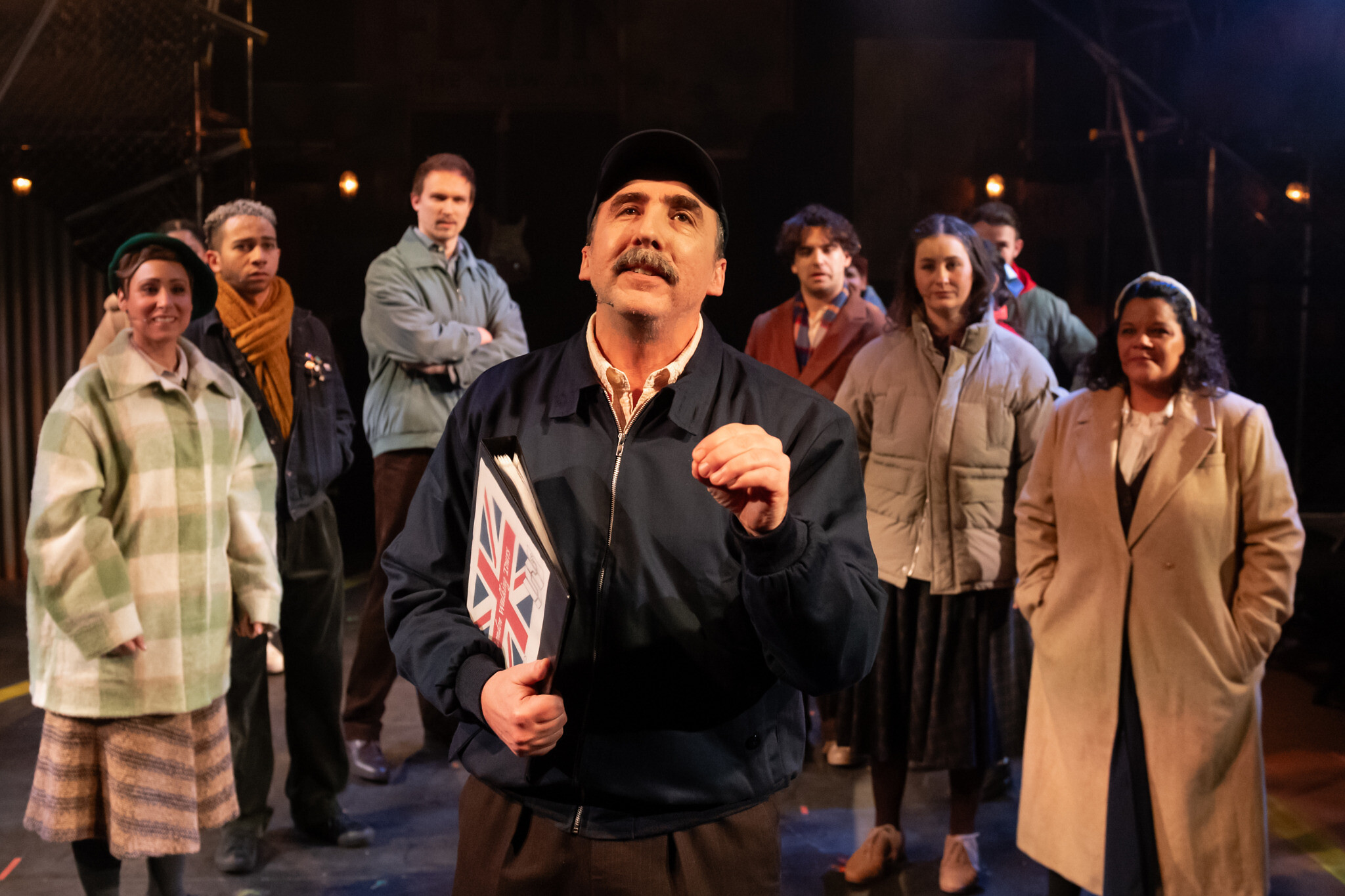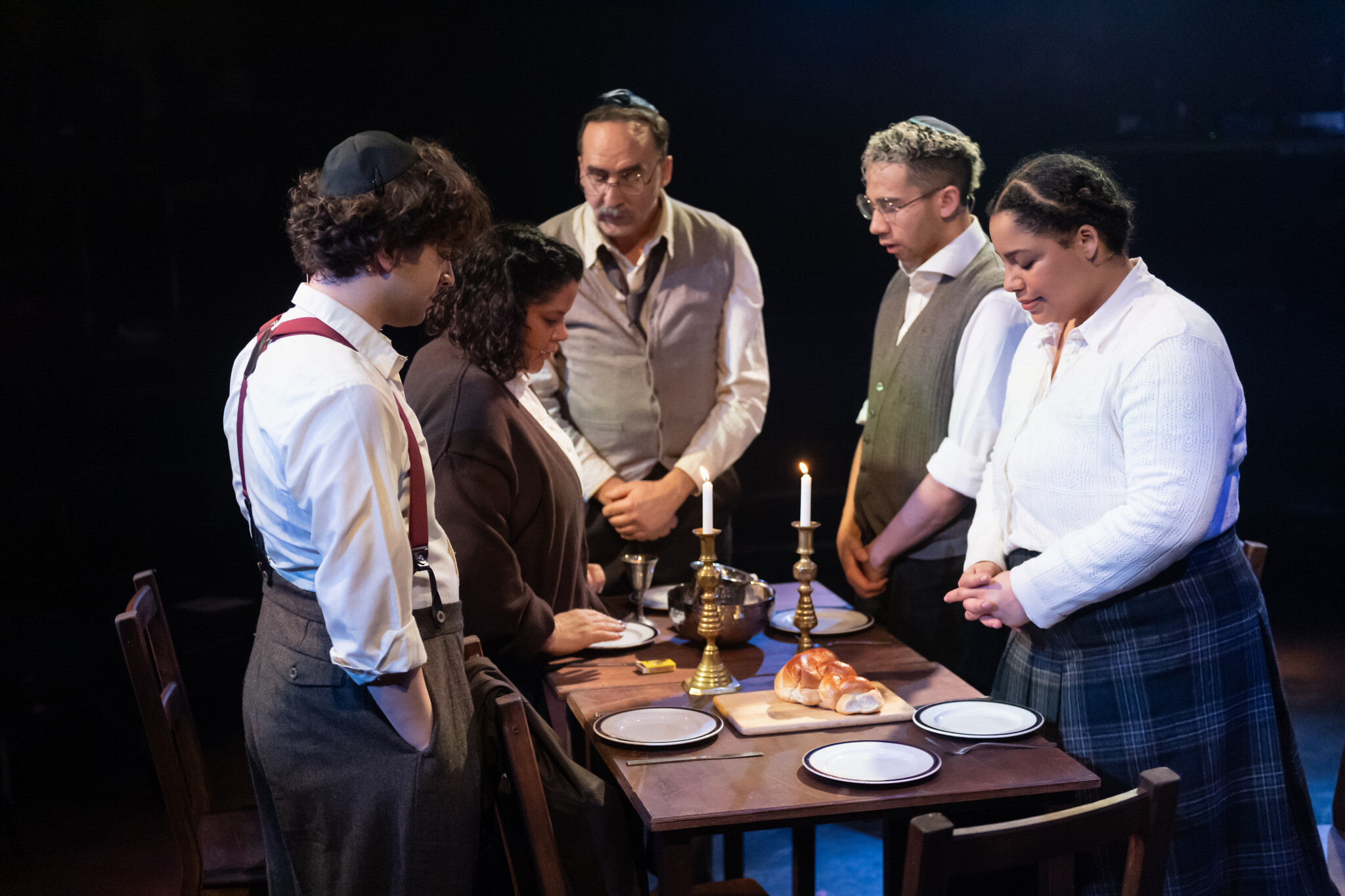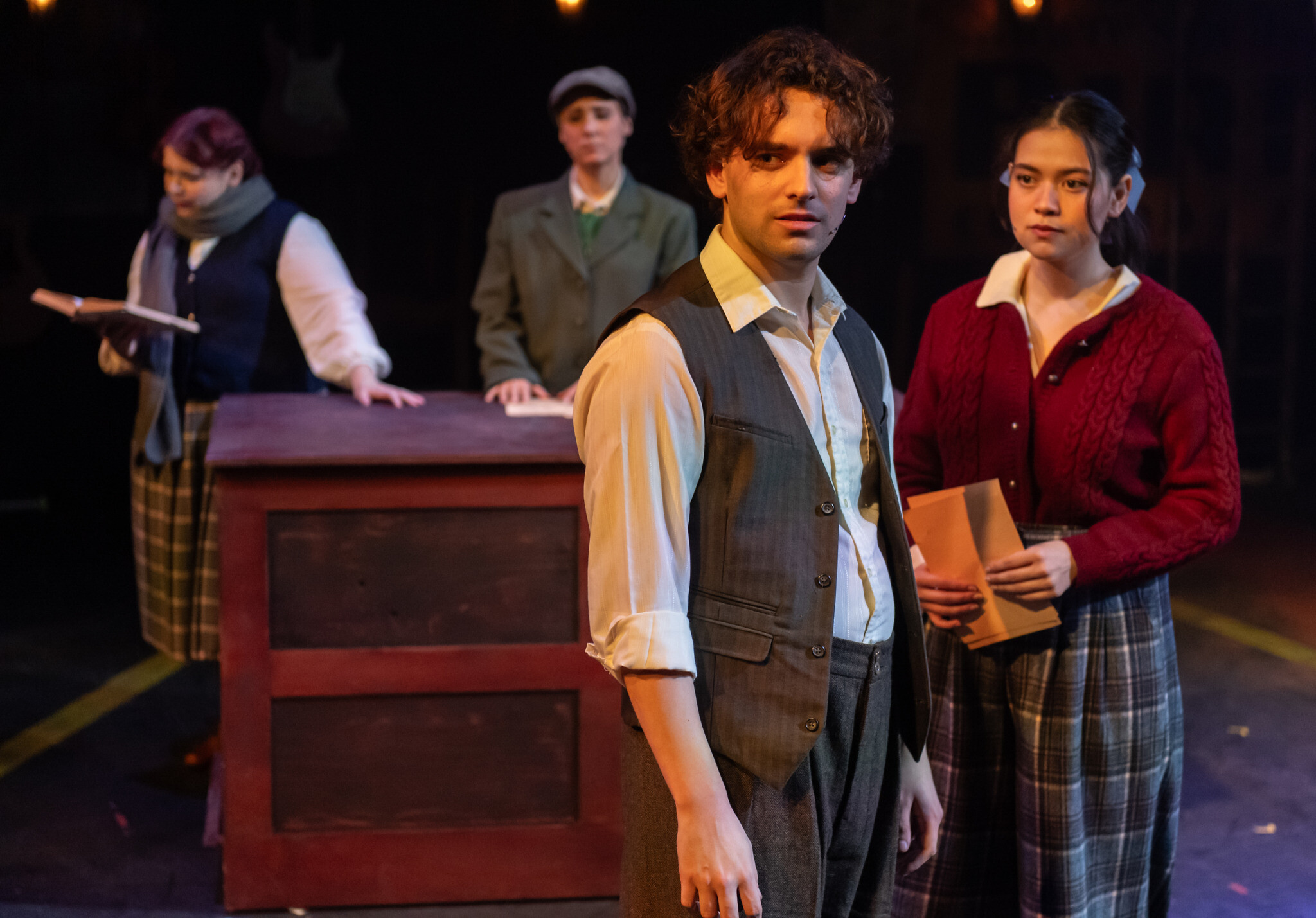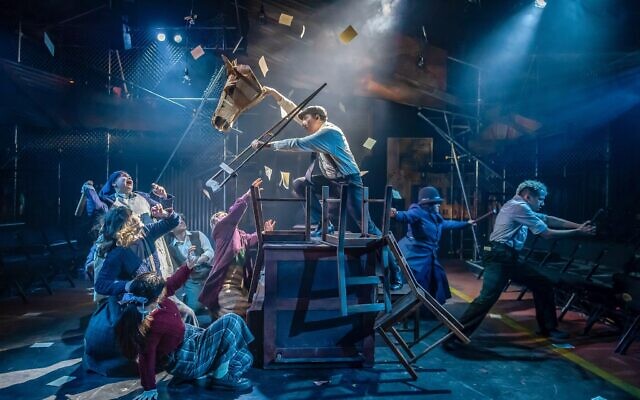UK
THEATRE
New show about the Battle of Cable Street deserves a much wider audience
Rap, rock and romance bring this story to life with a rousing score and star performances
That the Battle of Cable Street would even be considered as a suitable subject for the song and dance treatment will no doubt result in some eye-rolling, but writer Alex Kanefsky and lyricist Tim Gilvin have handled that painful day – October 4, 1936 – with kid gloves and instilled the score with the courage and conviction that honours those who fought against the Fascists.
The story of the eventual battle with Oswald Mosley’s Blackshirts is told through the friendship between three young people: a Brit new to the city, an Irish girl and a Jew. What could be the opening to a familiar joke is instead the set up for what becomes a triumvirate of unity delivered through rap and pop tunes. Danny Colligan (Book of Mormon) is Ron, Sha Dessi (Les Mis) is Mairead, and newcomer Joshua Ginsberg as Sammy is likely to touch a few hearts as he has charm, cheekiness and chein in equal measure. Debbie Chazen is a welcome presence and many will have seen her recently seen in Red Riding Hood and the Big Bad Pig at JW3, but refreshingly she has not been cast to type.
How a disparate group of young people came together to stand against fascism was the starting point for writer Kanefsky, whose own grandmother witnessed the battle.
“It may have been 88 years ago, but it feels a deeply resonant, modern story of hope in turbulent times,” he says. “Cable Street serves as a strong antidote to the ‘great man’ theory of history, as well as to frequent portrayals of Jews solely as victims in popular culture that I had seen so much growing up.
“When Tim and I discovered we both wanted to tell this story, writing together seemed serendipitous. We wanted to write something that could be faithful to those communities who banded together in the face of hatred, yet delve deeper beyond the popular myths and simple solutions.”
 Despite being a show that could (and should) transfer to a bigger stage, the Southwark Playhouse feels suitably humble for a musical wanting to convey the struggle of poor Eastenders, and the intimacy of the small auditorium brings tangibility to the growing tensions. That those tensions resonate more deeply now because of October 7 is why the musical matters and brings another layer to the creators’ themes.
Despite being a show that could (and should) transfer to a bigger stage, the Southwark Playhouse feels suitably humble for a musical wanting to convey the struggle of poor Eastenders, and the intimacy of the small auditorium brings tangibility to the growing tensions. That those tensions resonate more deeply now because of October 7 is why the musical matters and brings another layer to the creators’ themes.
“The 2016 Brexit vote seemed to open a Pandora’s box of xenophobia, nationalism, and overt racist rhetoric across the country” Kanefsky continues. “The parallels with the 1930s jumped out at me: financial depression, political upheaval and powerful figures scapegoating minorities for all of society’s ills.
“At the time I was delivering anti-discrimination workshops with teens in schools for Stand Up (a partnership of CST with TellMAMA). When young Muslims spoke of their negative portrayal in the media it really struck a chord: we’ve been here before.”
 Capturing the sentiments of 1936 in such songs as the rousing No Parasan, which closes out the first act with barricades being built and the community uniting, is quite an achievement as this is dark material and not an obvious fit for chorus numbers. “Musicals can work well when the story they tell is larger than life,” insists Gilvin. “On 4th October 1936, Londoners from all backgrounds and cultures took the streets to unite with one voice. There was singing in the streets and chanting of ‘no pasaran’ (they shall not pass). It’s a story that cries out to be told with music.
Capturing the sentiments of 1936 in such songs as the rousing No Parasan, which closes out the first act with barricades being built and the community uniting, is quite an achievement as this is dark material and not an obvious fit for chorus numbers. “Musicals can work well when the story they tell is larger than life,” insists Gilvin. “On 4th October 1936, Londoners from all backgrounds and cultures took the streets to unite with one voice. There was singing in the streets and chanting of ‘no pasaran’ (they shall not pass). It’s a story that cries out to be told with music.
“Early on in the process, we decided to use contemporary music as a metaphor for the parallels between 1936 and the present day, and within that we wanted to showcase eclecticism, reflective of the eclecticism of the Londoners on the streets that day. We have three protagonists: Mairead, from an Irish background, is a revolutionary and lives in a punk/protest-folk world. Our Jewish lad Sammy is a bit of a scrapper, and a former boxer, and uses rap to tell his story. Ron has recently moved to London from the north of England, and has an idealistic, lyrical Indie/Brit-rock sound. We have also included a bit of music hall, the popular music of the day, and have tried to create a real melting pot of influences, just like the East End, then and now.”

With rap, rock and a touch of romance the story comes to life with limited props and most cast members playing multiple roles, effortlessly slipping between them with just a change of headgear or the donning of an armband. They were encouraged to research the story and in particular their role, and in a real-life case of things coming full circle, Joshua Ginsberg discovered that his great grandfather Isidore Baum was among those who took to the streets. “I really was gobsmacked,” says Ginsberg. “I didn’t even know about Cable Street, so it’s such a privilege to find out my family’s story and how similar it is to the play.”
With a score that takes inspiration from Come From Away and Hamilton and first class performances Cable Street should be relocated to the West End as quickly as possible, not only because the Southwark run has completely cold out, but because it has a message that needs to be heard by many .

No comments:
Post a Comment